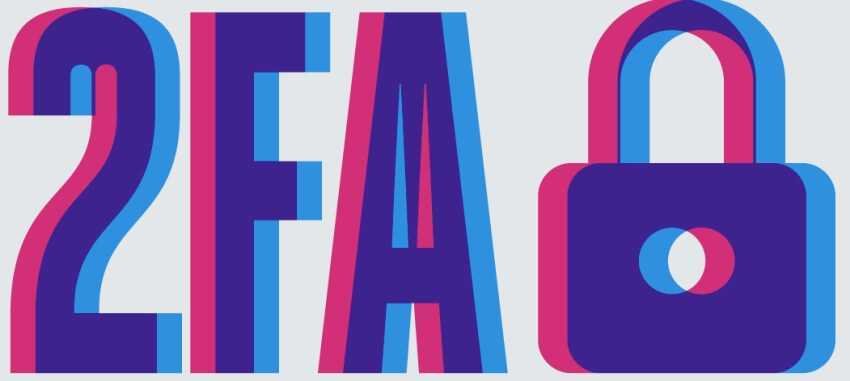Those who deal with the internet spend several hours surfing with their browser. But most of you are ruining a pleasant web browsing experience with the following simple, common mistakes.

Surfing the internet is the simplest and at the same time enjoyable activity in the internet world. You usually spend many hours every day browsing an incredible range of web pages with your browser.
So since you're spending so much time on an activity, shouldn't you make sure you're doing it right? So avoid the following simple mistakes.
Mistakes that can ruin the enjoyment of carefree surfing, bringing backfires like slowing down your browser to the point where you leave yourself vulnerable to viruses and hackers.
The sad truth is that the “good browsing habits» don't require that much effort, yet people still neglect them.
Avoid these mistakes while browsing the web for an overall better and safer browsing experience on it.
Skip browser updates

You must have seen the notification that pops up every now and then asking if you want to update your browser to the next version, right?
Browser updates exist for two main reasons: to add new features and to fix bugs in previous versions. Big features are usually added in major version updates, so more often than not, these browser updates are small tweaks and changes that can be applied in seconds.
What kind of changes do regular updates bring? Fix security vulnerability or improve user experience issues like memory leaks and performance bottlenecks etc.
Unless you have a good reason to stick with an older version it's always better to use the latest version of your browser.

You've probably heard of cookies before, but maybe you don't understand exactly what they are or why they're so important. You can get by without knowing much about them, but if you want to maintain complete privacy while browsing the web, you will you need to know what cookies are.
In short, cookies are files that are created on your computer when you visit a website. These files are intended to store information that helps you to return to the website easily and quickly at a later time and are not inherently harmful. However, they can be used in harmful ways, such as tracking your behavior on the web.
What you need to do is allow home page cookies, which are set by the actual domain you are visiting, and disallow third-party cookies, which are set by other domains, such as advertising networks.
Some websites may need third-party cookies to function properly. For example, online banking sometimes requires these cookies for user verification.
The "It won't happen to me" mentality.

The right tools can certainly make it easier to stay safe, but in general, safety is more about mindset and attitude, despite the specific tools you use.
That is, you can do all the right things and still be at risk because of an arrogant approach to the internet.
The first thing you should do is install anti-virus software if you haven't already. There are many free antivirus solutions out there and the default security apps, such as Windows Security Essentials, are pretty stable these days, so turn it on!
Another thing to do is watch out for them scams. It's incredibly easy to get scammed online, so you should never be complacent. There are online shopping scams like eBay, Craigslist scams, Facebook scams and even fake reviews that plague almost every online marketplace in existence.
Learn the warning signs. If an online offer seems crazy or too good to be true, don't hesitate to turn the other way. Even when everything looks legit, always double and triple verify everything.
Stacking space with tabs

"Open now, read later". That's the motto of surfing the web for many of you, right? Whenever you come across interesting links, you open them all in new tabs. Over time, they just accumulate, filling the browser with dozens of tabs that can affect its performance.
The easiest thing to do is to use tab groups. Tab Group is a minimalist solution to tab overload in almost all modern browsers, allowing you to categorize tabs by topic and only have tabs of a specific group open at any time.
Or you can always save them for later. You can use the built-in Reading List function in Chrome (List feature) and other browsers, and you can also search for third-party extensions, for later reading.
Too many plugins

Browser add-ons certainly improve your browsing experience by providing unique new features or enhancing existing ones. Add-ons like grammar checkers, password managers, video downloaders and more are widely popular.
The point is that these plugins are small applications in themselves, so they consume memory and resources while they are installed and activated. If you use too many plugins, they may degrade your browser's performance.
You should keep only the plugins you need, and delete or disable the ones you don't use often. The plugins you use to customize your browser's theme and appearance can also slow it down and don't really add any utility value.
Not using a VPN on public Wi-Fi

A VPN (or Virtual Private Network) hides your IP address from the websites you visit to keep you safe and your activities private on the web. It gives you a virtual IP so that no one can track you. You don't even need to install one application VPN, as many VPN extensions are available as browser add-ons.
VPNs can be especially useful if you use public Wi-Fi. This way, you can easily protect your confidential data in case public Wi-Fi is used for hacking.
But more generally, credit card and public Wi-Fi should never be combined.
Using the same passwords without 2FA

Weak passwords are one of the most obvious sources of theft and hacking on the internet. You should always use a strong password.
And if you're not sure, learn the characteristics of a good password and make sure you use a different password for each site. This will prevent a hacker who might crack a password from gaining access to all of your accounts.
If remembering passwords bothers you, consider using one password manager. They are convenient and efficient.
You can also go a step further and use two-factor authentication to keep your accounts secure. This way, you receive a code on your registered device or mobile number to complete the login process. This makes your credentials much more secure.
Clicking on links and ads

Hackers use a method called spoofing in which they create fake links and emails that look legitimate. This type of attack mainly targets web users.
They usually use attractive advertisements on websites and in emails that offer discounts or free gifts to attract you.
Once you click on such ads and links, hackers send viruses your way or try to steal your data. Therefore, it is very important to develop the habit of avoiding opening these shady links.
Using your credit card on fake websites

Credit cards make online shopping convenient. However, it is vital that you only use your credit card on websites with a good reputation.
It goes without saying that one maliciouss website can steal money from you if you give it to them data of your credit card. Hackers might not do it right away, but they can at any time.
If you've recently used your credit card on a questionable website, you may want to let your bank know so they can take the necessary steps to keep you safe.
Or maybe it's better to issue a virtual card with some money in it, just for your digital purchases.
You share too much of yourself on social media

Social media has its benefits, but it also has some risks. Sharing too much on social media, such as what college you go to, places you visit, and where you live, can potentially put you at risk.
There are predators on the internet that track people and track their movements. And with your mistakes you will not only hurt yourself. You may also put the people around you at risk.
So always use social media with proper privacy practices and don't reveal your locations, habits and financial information publicly.
Does it make any sense for the entire internet to know that everyone is missing from your house right now because you are telling them you are on a family vacation in Rhodes? If you come back and find it hacked don't be surprised afterwards.
Keep your friend lists organized with only the people you really know and limit your data and updates to just them.
Stay safe while browsing the web
Browsing the internet is something you do every day. Therefore, it is important to understand that with the benefits, there are also potential risks associated with web browsing.
The points mentioned above will help you avoid common web browsing mistakes. Adopt these habits and you'll see improvements in your browsing experience, and you'll also feel safer.





